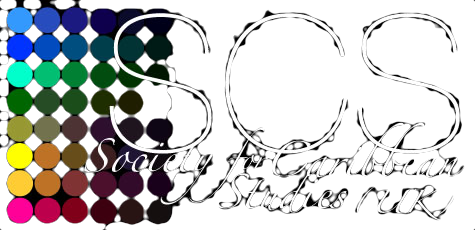
HAYES DE KALAF, EVE
Research Fellow @ Institute of Commonwealth Studies (ICwS)
Bio
Eve Hayes de Kalaf has an extensive academic and professional background working across Latin America and the Caribbean. She completed her PhD in Latin American Studies from the University of Aberdeen in 2018 and has won several awards and international recognition for her work on ID systems and legal and digital identity in Dominican Republic. This includes the David Nicholls Memorial Trust Award (2016) and the Guy Alexandre Paper Prize, Latin American Studies Association (2018). Eve is Research Fellow at the Institute of Commonwealth Studies (ICwS) and Visiting Fellow at the Centre for Latin American and Caribbean Studies (CLACS), University of London where she recently relaunched and now convenes their monthly Caribbean Studies Seminar Series. Please contact Eve directly if you would like to present your work at these seminars.
Geographical location : Birmingham and London
Research Area and Interest : Citizenship and noncitizenship, legal and digital identity, statelessness race and anti-racism, identity and belonging, Latin America and the Caribbean, international development, slavery and settler colonialism, social policy, inclusion/exclusion
Social Media
Panel(s)
- Summary:
Presentation(s)
- Summary: This panel will reflect upon the outcomes of our recent conference organised in June 2023 to commemorate the 75th anniversary since of the docking of the Windrush. We will use the session to share the responses of activists, heritage organisations, community historians, legal specialists, government representatives and Caribbean High Commissioners. We will include the voices of a broad array of people who have participated in our three-year AHRC-funded oral history project 'The Windrush Scandal in a Transnational and Commonwealth Context'. The project, in collaboration with the Black Cultural Archives and the British Library, seeks for the first time to produce a scholarly examination of the scandal, placing it within a fully transnational framework. Half of the interviews we have conducted involved the contributions of members of the diaspora community, those who found themselves under threat of deportation or actually deported, and their supporters and legal and political representatives. The remainder of the interviews examined, via extensive fieldwork in the region, the responses of Caribbean governments and their representatives in London to the legal restrictions imposed on immigration to the UK from the Caribbean from the early 1960s. To conclude the session, we will engage in a broader discussion about the long-term implications of the 'Windrush' scandal. We will use the space as a time for reflection and collaboration so that, as a collective, we can share our frustrations and anger while also striving to find hope, healing and solidarity.
